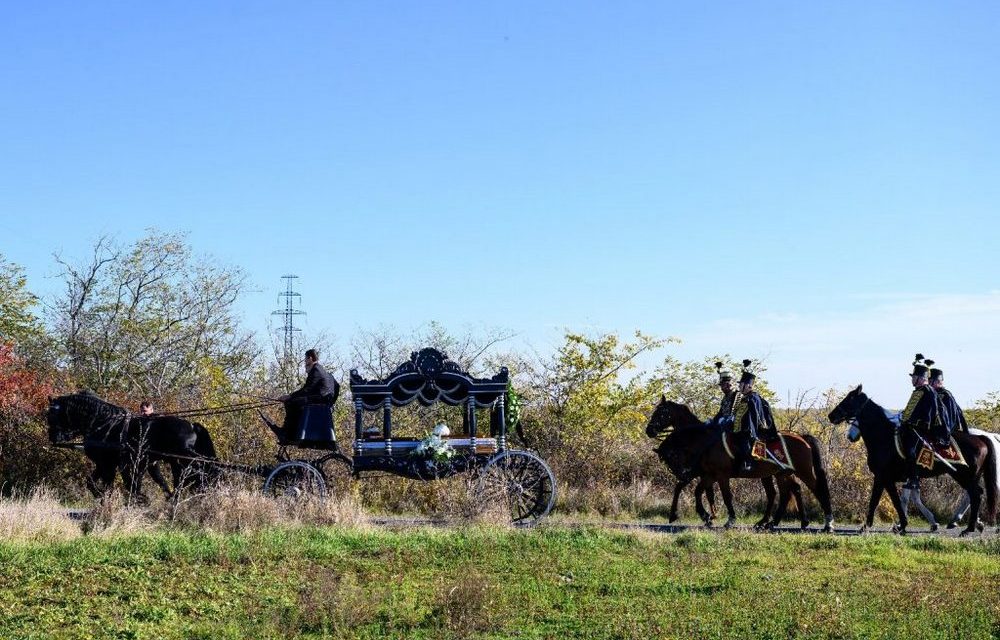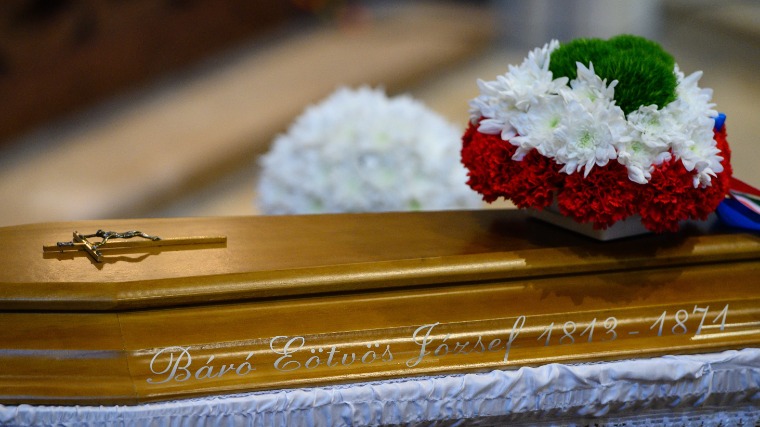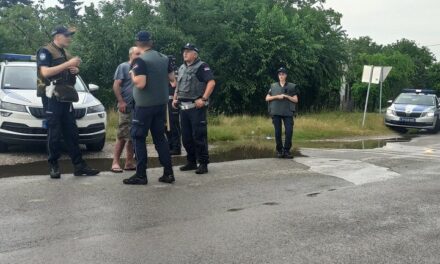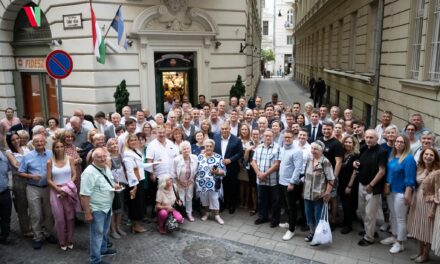When we remember Baron József Eötvös, we think not only of the reform-era politician, but also of a man who entered his name among the greatest in Hungarian history - emphasized the Minister of Human Resources on Saturday, at the reburial of Baron József Eötvös and his family in Ercsi, Fejér county.
Miklós Kásler - after the funeral mass presented by County Bishop Antal Spányi - emphasized in his eulogy: József Eötvös was a true Hungarian and a true Christian. He recalled: the greats of the Hungarian reform era, including József Eötvös, talked for at least 50-60 years about how it could be achieved to help the common good, " extend the rights of the nobility to the entire nation, sharing power and opportunities with everyone in the spirit of Hungarian traditions , with Christian faith, legally, constitutionally ".
According to Miklós Kásler, Baron József Eötvös' entire life was defined by two things: his service to the public good, and literature and philosophy. As the Minister of Religion and Public Education of the Batthyány and Andrássy governments, he found a solution to nationality issues, the emancipation of the Jews, introduced free state public education, and reformed secondary schools and universities.
According to the head of the ministry, the work of Eötvös made possible the amazing development that Hungary produced after 1867, the period called equalization by Ferenc Deák, when the GDP increased sixteen times until 1914. In addition, he created the foundations for Klebelsberg to further develop its public education system after the Trianon disaster and thereby ensure the survival of the doomed country.
Following the funeral mass, the coffins were transported by horse-drawn carriage to the Eötvös Kápolná, where Tamás Freund, president of the Hungarian Academy of Sciences, gave a farewell speech in accordance with the traditions of the time. In his speech, he emphasized that József Eötvös was not only the third president of the Hungarian Academy of Sciences, but also a writer, politician, lawyer, and active public figure who resolutely supported civic transformation.
He mentioned that after his death, according to his will, he was buried in the place of his childhood, in Ercsi.
L. Simon László, the director general of the Hungarian National Museum, recalled that five years ago they wanted to bring the bones back to their original place, but only now did they succeed with cooperation, on the 150th anniversary of the baron's death. He called the reburial a national cause, which fulfills the baron's last will.
He believed that, parallel to the fulfillment of the last will, the nation took a small step in the direction of putting the " wheel of history that had been moved from the right direction back on the path that was marked by the predecessors ".
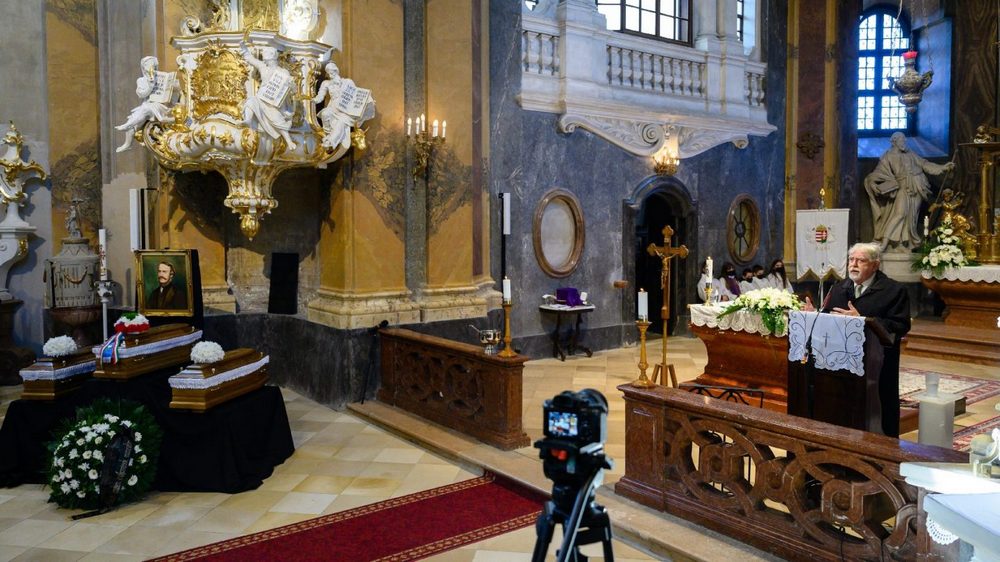
Minister of Human Resources Miklós Kásler gives a speech after the funeral mass held on the occasion of the reburial of Baron József Eötvös and his family at the Assumption Church in Ercsi on November 6, 2021 (Photo: MTI/Tamás Vasvári)
József Báró Eötvös, writer, poet, politician, statesman, was born on September 3, 1813 in Buda. He studied law in Pest between 1826-1831, and passed the bar exam in 1833. In 1834, he became the sub-registrar of Fejér County and then the draftsman in the chancellery.
In 1848, he became the minister of religion and public education in the first responsible Hungarian government. Together with Széchenyi and Deak, he was a supporter of moderate politics, and after the resignation of the Batthyány government on September 11 and the murder of Count Lamberg, the royal commissioner, on September 28, he emigrated, frightened by the expected events.
Returning home in 1851, he again took part in public life, from 1856 he was vice president of the Academy, from 1866 its president, and he participated in the reorganization of the Kisfaludy company. After 1867, as the only minister from '48, he became a member of the Andrássy government, once again heading the ministry of religion and public education.
He introduced compulsory schooling, settled the relationship between denominations and the state, gave equal rights to the Jewish religion and the status of nationalities in education, and also planned the civilian transformation of the school system. He supported universities, established a teacher training college, and raised engineering education to university level. He died on February 2, 1871 in Pest.
Source: MTI / hirado.hu
Cover photo: A hearse takes the coffins of József Báró Eötvös and his family to the Szapáry-Eötvös chapel near Ercsi on November 6, 2021. (Photo: MTI/Tamás Vasvári)

